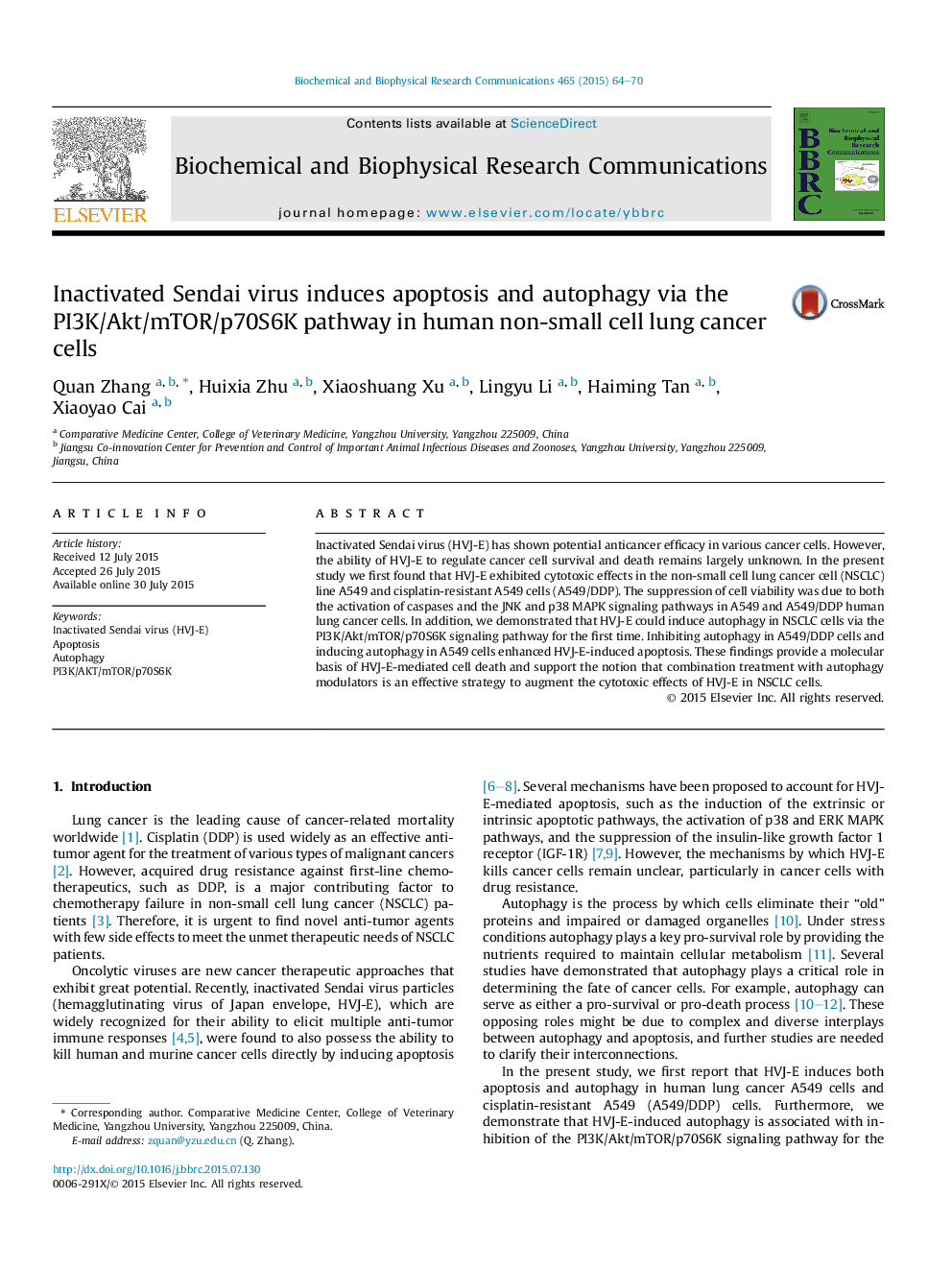| Article ID | Journal | Published Year | Pages | File Type |
|---|---|---|---|---|
| 1928119 | Biochemical and Biophysical Research Communications | 2015 | 7 Pages |
Abstract
Inactivated Sendai virus (HVJ-E) has shown potential anticancer efficacy in various cancer cells. However, the ability of HVJ-E to regulate cancer cell survival and death remains largely unknown. In the present study we first found that HVJ-E exhibited cytotoxic effects in the non-small cell lung cancer cell (NSCLC) line A549 and cisplatin-resistant A549Â cells (A549/DDP). The suppression of cell viability was due to both the activation of caspases and the JNK and p38 MAPK signaling pathways in A549 and A549/DDP human lung cancer cells. In addition, we demonstrated that HVJ-E could induce autophagy in NSCLC cells via the PI3K/Akt/mTOR/p70S6K signaling pathway for the first time. Inhibiting autophagy in A549/DDP cells and inducing autophagy in A549Â cells enhanced HVJ-E-induced apoptosis. These findings provide a molecular basis of HVJ-E-mediated cell death and support the notion that combination treatment with autophagy modulators is an effective strategy to augment the cytotoxic effects of HVJ-E in NSCLC cells.
Related Topics
Life Sciences
Biochemistry, Genetics and Molecular Biology
Biochemistry
Authors
Quan Zhang, Huixia Zhu, Xiaoshuang Xu, Lingyu Li, Haiming Tan, Xiaoyao Cai,
